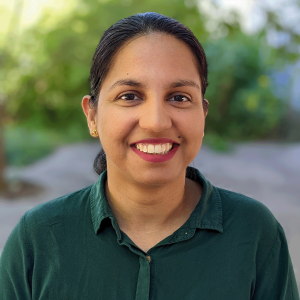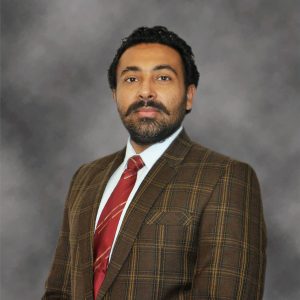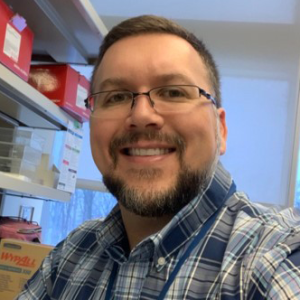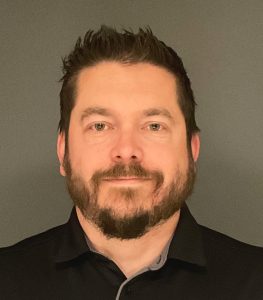Soybean

Sep. 22, 2022
Gurpreet Kaur
Kaur is based at the Northern Missouri Research, Extension, and Education Center, Novelty MO. Her responsibilities include conducting soil science research at the Northern Missouri Research, Extension, and Education Center farms including Lee Greenley Jr. Memorial farm, Cornett Research Farm, and Thompson Research Farm. Her research is focused on soil fertility and nutrient management to increase crop productivity, profitability, and nutrient use efficiency, while improving environmental quality. She is also interested in the impact of management practices such as tillage, crop rotations, cover crops, nutrient and water management on soil properties and agronomics. Specific research interests include evaluation of fertilizer…

May 31, 2022
Gurbir Singh
Singh’s faculty appointment includes research and Extension responsibilities in applied soil science-agroecology and landscape position management. He serves as State Extension Specialist for landscape position management. His research is focused on spatial/temporal modeling of nutrient dynamics in the plant, soil, water, and gaseous phases ranging from plot scale to watershed scale. His program includes developing prescription models for landscape position-based research. His research also involves understanding the effects of management practices such as cover crops, tillage, and topography on crop yields, soil and water quality in row crop production systems. At the Northern Missouri Research, Extension and Education Center, his…

Feb. 21, 2022
Sam Lord
Educational background Ph.D. , University of Missouri, Natural Resources – Emphasis in Soil M.S., University of Missouri, Natural Resources – Emphasis in Soil B.S. 2016, University of Missouri, Soil, Environmental, and Atmospheric Sciences – Emphasis in Soil Courses taught Soil 2100 Lecture: Introduction to Soil Science Soil 4308/7308: Soil Conservation Soil 4312/7312: Environmental Soil Microbiology…

June 30, 2021
Victoria Vieira-Potter
The Vieira-Potter laboratory studies sex differences in adipose tissue metabolism, and how sex hormones (namely, estrogen) and exercise affect fat cell metabolism. This is done via use of a variety of animal models and state-of-the-art molecular tools. Our goal is to determine adipose (i.e., fat) tissue-specific mechanisms by which hormone shifts and obesity affect cardiometabolic disease risk, and to discover novel interventions to mitigate this risk by specifically targeting adipose tissue. Our work has demonstrated that female hormone loss adversely affects adipose tissue both directly, via loss of the protective effects of estrogen receptor signaling, and indirectly, via brain-specific mechanisms…

April 5, 2021
Heike Buecking
Plants are metaorganisms that engage in intimate associations with a wide diversity of microorganisms. Many of these microorganisms are beneficial and help plants to overcome a variety of abiotic and biotic stresses. In our research, we focus particularly on arbuscular mycorrhizal (AM) fungi and nitrogen fixing rhizobia bacteria. AM fungi played a significant role during land plant evolution and form close interactions with the roots of 70% of land plants, including many agronomically important species, such as corn, soybean, or wheat. AM fungi increase the nutrient acquisition of for example phosphate, nitrogen, sulfur, and potassium from the soil, and improve…

Jan. 22, 2021
Ben Brown
Educational background M.S., Agricultural and Applied Economics, University of Missouri, 2017 B.S., Agricultural Economics with Agronomy Specialty, Kansas State University, 2015…

Dec. 11, 2020
So-Yon Park
Host-Parasitic plant interaction is a fascinating model to study Plant-Plant interaction. Park is interested in how mobile RNAs and proteins are exchanged, transferred, and functional in other organisms through the host-parasite interaction. Cuscuta (stem parasitic plant) and Phelipanche (root parasitic plant) growing on Arabidopsis, tomato, and soybean are major parasites used in Park lab. We are also interested in how small RNAs are transported and suppress target genes under drought stress in soybeans. Educational Background B.S., Dankook University, South KoreaPh.D., Seoul National University, South Korea…

June 5, 2020
Morgan P. Davis
Davis’ research is centered around soil biogeochemistry in the context of ecological sustainability. The objective of his research is investigating nutrient and energy cycles in both managed and natural ecosystems. This work provides insights for improving sustainability and contributes to foundational biogeochemistry knowledge. He is particularly interested in nitrogen and carbon transformations in forested and agronomic ecosystems. Specific research interests include the following: soil greenhouse gas emissions, soil health, soil organic matter, cover crops, tillage management, nitrate leaching, microbial communities, denitrification, indirect nitrous oxide emissions, and riparian buffers. Educational background Ph.D., Iowa State University, 2018 M.S., University of Illinois Urbana-Champaign,…

Jan. 14, 2020
Tom Slewinski
Tom Slewinski currently leads the Crop Efficiency and Disease Discovery Lead in the Biotechnology division of Bayer Crop Science in Chesterfield, MO. Prior to joining industry, Tom completed his post-doctoral training at Cornell University where he worked on the underlying genetics, physiology and evolution of phloem loading in trees and kranz-type C4 photosynthesis in maize. Educational background Ph.D., Plant Biology, Pennsylvania State University. B.S., Biochemistry and Molecular Biology, Pennsylvania State University…

Sep. 17, 2018
Derek Brake
Educational background Ph.D. Ruminant Nutrition, Kansas State University M.S. Animal Science (Ruminant Nutrition), Kansas State University Courses taught AnSci 4332/7332: Ruminant Nutrition AnSci 4975/4975W/7975: Beef Production…
- « Previous
- 1
- 2
- 3
- 4
- Next »